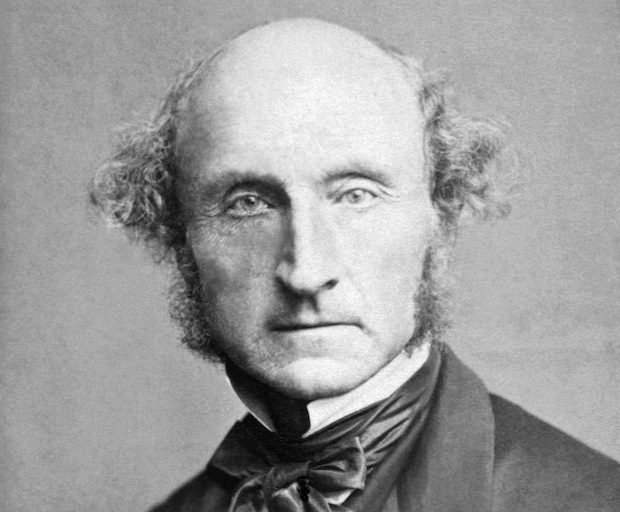What’s Coming After Liberalism?

A letter from a college professor:
I think your post about the need to fight back is exactly right. I also think it might be hopeless. It pains me to say that, but people like me will not speak our minds if it comes at the cost of our livelihoods.
That comment at the beginning of the post — about all of this stuff making us turn inward, away from public discourse — is exactly how I feel. Most of my friends are secular, urban, liberal academics, and I lost them all after Obergefell. I didn’t even argue against the verdict. I simply suggested that perhaps we should be cautious in defining liberty and happiness and social good simply as what gives us personal gratification, and pointed out that Kennedy’s famous reasoning from Casey, which you cite often, is a recipe for social and moral bankruptcy. In what was virtually a friendship intervention, I was told that my views were prejudiced and hateful, and thus I was not worth listening to. Having already lost all of them, I don’t plan to risk my professional life by writing or saying anything in public about the current SJW craziness; virtually the only writing I do now is about fiction, which still provides some safety. And so, like that commenter, I turn inward: to my family, to my home, to nature, to books, to my parish. When civitas terrena is in its current state, where else to turn but civitas dei?
There are two other things I’ll point out about campus life today. One is that we’re all still realizing just how thoroughly the ideas of Michel Foucault were institutionalized in humanities departments. Foucault was fairly brilliant — the Panopticon section of Discipline & Punish reads like a virtual prediction of the technological surveillance state — but he was also the leading voice in the so-called “discursive turn”: the idea that discourse is everything, that we cannot ever find any truly real/essential/ideal form beneath our terms for things. We create the world as we speak it, and there is nothing under that. That world we speak-create is all about forms of power, as you note in your post. So the scholar’s main concern becomes finding a locus of power — which, in case it’s not clear, is always and everywhere synonymous with discrimination and oppression — and disrupting it. Thus Hamlet goes from being a high point of Western literature to being a cesspool of misogyny, patriarchy, etc., and thus democratic deliberation goes from being a Habermasian process of “collective rationality” to being a tool of the elites. Power is the overarching concern of all things, and (crucially) the job of the academic is no longer to transmit wisdom or teach knowledge but simply to teach the next generation how to point out yet another locus of power. (Remember that litany of complaints at Amherst, where every type of perceived oppression under the sun was noted? Perfect example.) And the work in the classroom is work enough, because the work in the classroom becomes the template for social change. You don’t need to march in the streets to demand justice. You can just point out the misogyny in Elsinore and then lean back in your chair, with the knowledge that society will follow.
The second thing is how people still believe this is purely a campus phenomenon. Remember the JP Morgan Chase incident? (“Are you: An ally of the LGBT community, but not personally identifying as LGBT.”) This is coming to the business world, and corporations are moving to align themselves with the forces of Progress. This hit a kind of apotheosis during the Indiana thing. When you have Apple and Walmart — companies responsible for employee suicides, shuttered town squares, millions of un- and underemployed people, the exploitation of the natural world — being praised by liberals for their devotion the cause, then you know we’ve crossed an important barrier. Anyone — no matter what crimes a person or group or company has committed or continues to commit — who declares loyalty with this vaguely defined movement is on the side of the good. Anyone who opposes is not just an enemy but an undesirable, with no place in polite society. A person like me, in other words, and a person like you.
This is why, when people my parents’ age scoff at the whole trans thing and dismiss it as just the cause du jour (remember Darfur? neither do any of the SJWs), I shake my head and tell them they have no idea what’s coming. The project of the Willed Self is a natural outgrowth of Enlightenment thinking. (I share your opinion that Submission is not a great book, but a very important one in terms of exposing the internal contradictions of the Enlightenment.) The whole intellectual movement of the last three centuries has at its core the principle of freeing the willed self from all constraints. The trans movement represents this idea’s apex: if we can free ourselves from basic biology and anatomy, then truly we have become gods. “I am that I am” is no longer confined to Exodus 3; it is the mantra of the willed self freed from all external barriers. There is nothing beyond the subjective, the personal, the therapeutic, because all that matters is how I define my own self, my own existence, and my own gratification. There can be no society or community within this worldview. Patrick Deneen was right in that “After Liberalism” lecture he gave: Enlightenment liberalism has been scary for we traditional conservatives, but what’s coming next — what’s coming now — is terrifying.
Subscribe for as little as $5/mo to start commenting on Rod’s blog.